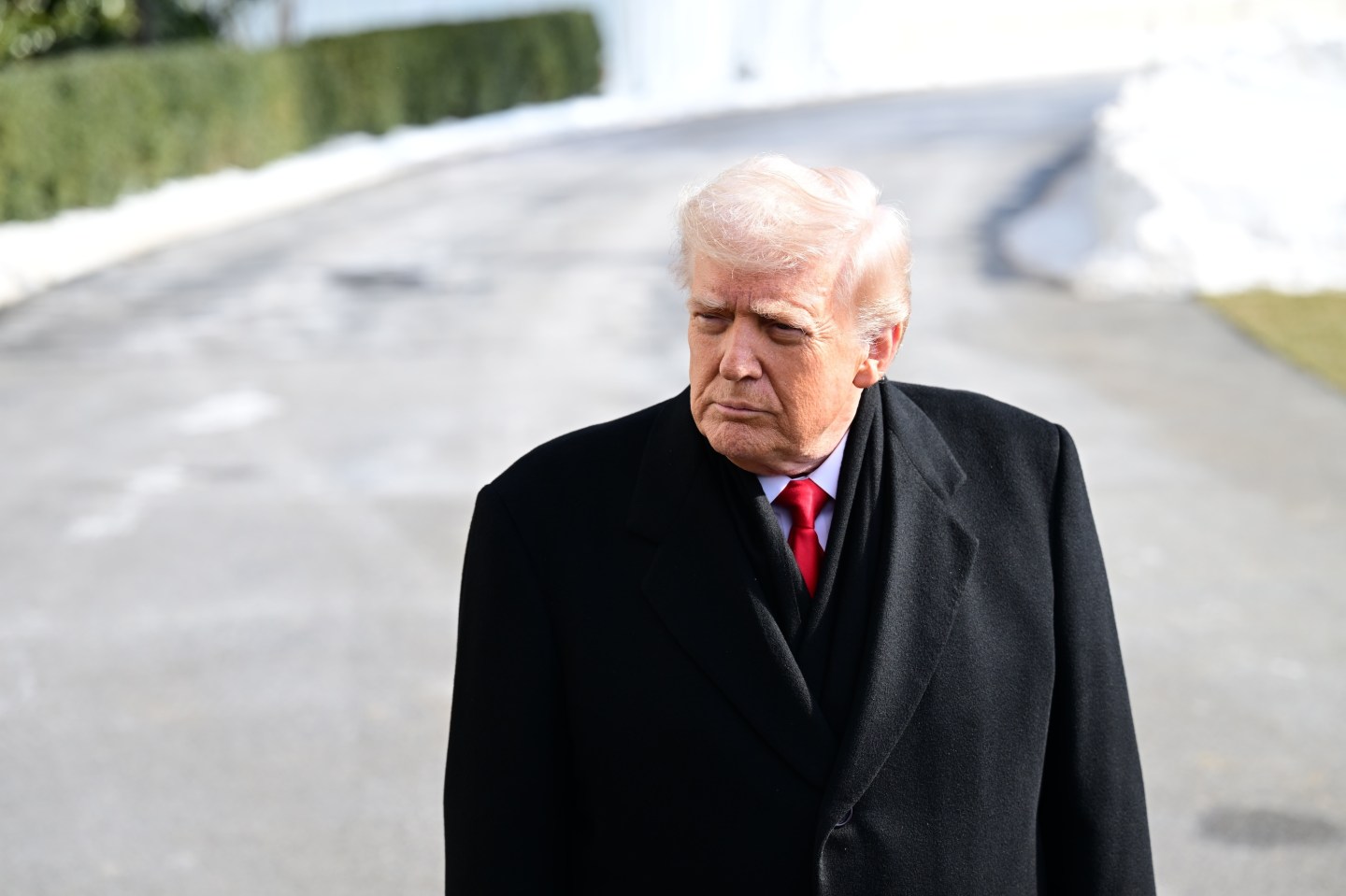Former Federal Reserve Governor Adriana Kugler abruptly resigned after Chair Jerome Powell refused to grant her a waiver to address financial holdings that ran afoul of the central bank’s ethics rules, according to a Fed official.
Kugler also faced a probe by the Fed’s internal watchdog related to her recent financial disclosures before stepping down in August, according to a document released Saturday.
Fed ethics officials declined to certify Kugler’s latest disclosures, which were posted on the website of the Office of Government Ethics, and referred the matter to the board’s inspector general, the document showed. The OGE also declined to certify Kugler’s newly released disclosures.
The disclosures revealed details related to financial activity that violated the Fed’s internal ethics rules.
Kugler announced on Aug. 1 that she would resign effective Aug. 8, without citing a reason and after she missed the central bank’s July 29-30 policy meeting. At the time, the Fed said her absence from the meeting was due to a “personal matter.”
Ahead of that meeting, Kugler sought permission to conduct financial transactions to address what the Fed official described as impermissible financial holdings. It wasn’t immediately clear which holdings were involved in that request.
According to the official, Kugler asked for a waiver to rules requiring top Fed officials to obtain clearance before conducting certain financial transactions and prohibiting them from trading during so-called blackout periods that straddle their policy meetings. Powell denied the request.
Kugler’s resignation gave President Donald Trump an earlier-than-expected opportunity to fill a slot on the Fed’s board in the midst of his intense pressure campaign urging policymakers to drastically lower interest rates. The opening ultimately went to Trump ally Stephen Miran, who took an unpaid leave of absence from his post as a White House economic adviser and has called repeatedly for rapid rate cuts.
Prohibited Trades
The newly released documents revealed previously undisclosed trading in individual stocks in 2024, which is prohibited for Fed officials and their immediate family members, including Materialise NV, Southwest Airlines, Cava Group, Apple Inc. And Caterpillar.
Some of the prohibited trades also represented violations for having been executed during blackout periods straddling each policy meeting during which no transactions are allowed.
That included the purchase of Cava shares on March 13, 2024, days ahead of a March 19-20 meeting and the sale of Southwest shares on April 29, 2024, on the eve of the Fed’s April 30-May 1 gathering. The disclosure also lists several fund transactions that fell within blackout periods.
A footnote connected to the Jan. 2, 2024, sale of Materialise NV shares read: “Consistent with her September 15, 2024, disclosure, certain trading activity was carried out by Dr. Kugler’s spouse, without Dr. Kugler’s knowledge and she affirms that her spouse did not intend to violate any rules or policies.”
Kugler, who was appointed to the Fed in September 2023 by President Joe Biden, declined to comment.
Financial Disclosure
In the disclosure released Saturday, Fed ethics official Sean Croston said, “Consistent with our standard practices and policies, matters related to this disclosure were referred earlier this year by the Board’s Ethics Office to the independent Office of Inspector General for the Board of Governors of the Federal Reserve System.”
The financial disclosure, which was submitted roughly a month after Kugler’s departure, covered calendar years 2024 and 2025 through her resignation. Top Fed officials are required to submit disclosures annually and after leaving the central bank, and to report periodic financial transactions.
“Earlier this year we received a referral from the Board’s Ethics Section regarding certain matters related to this filing,” a spokesperson for the Fed’s Office of Inspector General said in a statement. “We have opened an investigation and, consistent with our practice, we are unable to comment further until our investigation is closed.”
Previous Violations
In previously released, periodic financial disclosures during 2024, Kugler acknowledged that she had run afoul of Fed investment and trading rules when her spouse completed four purchases of shares of Apple and Cava.
Those trades violated the central bank’s rules that limit how senior Fed officials, their spouses and minor children invest and trade.
Kugler said her spouse made the purchases without her knowledge. The shares were later divested and Kugler was deemed in compliance with applicable laws and regulations by the Fed’s designated ethics official, according to the disclosures.
Powell introduced tougher restrictions on investing and trading for policymakers and senior staff at the central bank in 2022. That followed revelations of unusual trading activity during 2020 by several senior officials.
Boston Fed President Eric Rosengren and Dallas Fed chief Robert Kaplan each announced their early retirement after the revelations, with Rosengren citing ill health. The Fed’s internal watchdog ultimately cleared the pair of legal wrongdoing, but chastised them for undermining public confidence in the central bank.
The new rules, which the Fed said at the time were aimed at supporting the public’s confidence in the impartiality and integrity of policymakers, boosted financial disclosure requirements, among other measures.
Senator Elizabeth Warren, a Democrat from Massachusetts who has long called for stricter ethics rules at the central bank, released a statement on Saturday calling for bipartisan legislation “to make the Fed more transparent and accountable.”












